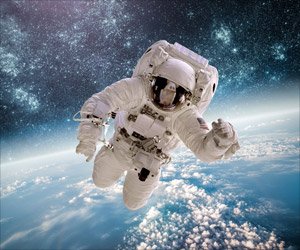Experiments on Child Brain Tumour and Muscle Ageing Heading to Space

The UK Space Agency has awarded £ 1.2 million to the Institute of Cancer Research’s D(MG) 2 project about one of the most common types of “primary high-grade” brain tumor that affects children. At the same time, The University of Liverpool’s MicroAge II project has received £ 1.4 million to explore how time spent in the microgravity environment of orbit causes muscles to weaken in the same way they do with age on Earth.
Through a combination of national funding, UK scientists are ensuring that they have access to the unique environment of the ISS for their research, which will benefit mankind and health systems around the world.
Insights on Cancer and Muscle Ageing Experiments in Space
D(MG)2 experiment aboard the International Space Station will improve our understanding of how cancer cells interact with each other within three-dimensional structures, and hopefully lead to new ideas for disrupting tumor growth that researchers can take forward back in the lab.
Advertisement
Meanwhile, MicroAge II will assess the impacts of the microgravity environment on lab-grown human muscle alongside exploring both whether mitochondria play a role in muscle loss in space, and whether the application of tension can slow the degeneration process.
This will help researchers to develop techniques to study the role of changes in mitochondria, tiny structures that are responsible for supplying energy to cells, in driving the loss of muscle mass that occurs in microgravity.
This will also be used to test whether altered tension on muscle regulates muscle loss in microgravity and to inform us of the process of muscle loss during aging on Earth.
Source: IANS
Source link
#Experiments #Child #Brain #Tumour #Muscle #Ageing #Heading #Space



